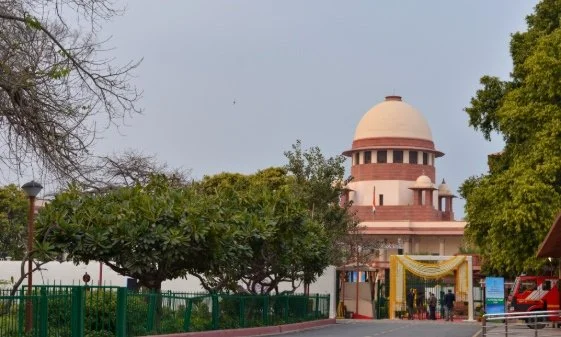Supreme Court Rejects Timelines for Governor’s Assent
Actions Under Articles 200, 201 Are Not Justiciable Until Bill Becomes Law
November 20, 2025
The Supreme Court has ruled that courts cannot impose deadlines on the President or State Governors for granting or withholding assent to bills passed by legislatures. Nor can courts treat inaction as assent. A Constitution Bench held that such directions, issued by a two-judge Bench in April 2024, are unconstitutional and violate the separation of powers between the judiciary and executive.
The Constitution Bench comprising Chief Justice B.R. Gavai and Justices Surya Kant, Vikram Nath, P.S. Narasimha and Atul S. Chandurkar found that the timelines prescribed in the earlier judgment, as well as the concept of deemed assent in case of delay, amount to the Court stepping into the constitutional role of the Governor or President, as reported by Bar and Bench. This, the judges said, is not permissible.
According to the ruling, “The imposition of timelines is strictly contrary to the elasticity that Constitution has preserved. The concept of deemed assent in the context of Articles 200 and 201 presupposes that one Constitutional authority, namely court, could play a substitutional role for another Constitutional functionary authority – the Governor or President.” The Court concluded that this would amount to “usurpation of gubernatorial powers” and is “antithetical to the spirit of the Constitution and the doctrine of separation of powers.”
The Bench also made clear that the Governor’s role under Article 200, which deals with assent to State legislation, cannot be replaced by any other authority, and that deemed assent would “virtually takeaway” the role of a constitutional functionary.
A key part of the ruling is the Court’s conclusion that functions exercised under Articles 200 and 201 are not justiciable. This means they cannot be challenged in court while the bill is still pending with the Governor or President. Judicial scrutiny, the Court held, becomes possible only after the bill receives assent and becomes law.
The judges said, “It is unfathomable to suggest bills can be brought to court rather than being opined on under Article 143 as referred by the president under advisory jurisdiction. President need not seek advice of this court every time when bills are referred to him.”
However, the Court allowed a narrow space for judicial review in cases where there is “inordinate and unexplained delay.” Even then, it clarified that “not everything will lead courts to issue automatic directions to act,” and any intervention would depend on “appropriate circumstances.”
Courts may issue “limited directions in terms of constitutional accountability,” but not dictate how the Governor or President must act.
The Court also warned that Governors cannot behave like “super Chief Ministers” and that “there cannot be two executives within a State.”
This Constitution Bench ruling was delivered in response to a reference made by President Droupadi Murmu under Article 143(1) of the Constitution, which allows the President to seek the opinion of the Supreme Court on legal questions of public importance.
The reference challenged a decision issued on April 11, 2024, by a Bench of Justices J.B. Pardiwala and R. Mahadevan in the case State of Tamil Nadu v The Governor of Tamil Nadu & Anr. That judgment said that even though Articles 200 and 201 did not set deadlines for Governors or the President, constitutional silence could not be used to stall the legislative process. The ruling also stated that the President’s decision must be given within three months, and that if the timeline is not met, it would result in deemed assent.
The Tamil Nadu judgment triggered strong opposition from the Union government and led to the Presidential reference.
The judgment restores the status quo under Articles 200 and 201, reaffirming that these provisions allow for discretion without judicially imposed constraints. While acknowledging the potential for delay, the Court has left that issue to be addressed politically, or in extreme cases, through narrow judicial directions that do not interfere with the substance of the decision.
The Court has confirmed that bills cannot be treated as law or be subject to review until assent has been granted. It has also stated that any timeline or substitution mechanism, such as deemed assent, violates the Constitution’s allocation of powers.
While the Governor of Tamil Nadu appeared to act in a manner that served the Centre’s political interests rather than maintain constitutional neutrality, the Court’s refusal to impose timelines was a necessary act of judicial restraint.
You have just read a News Briefing by Newsreel Asia, written to cut through the noise and present a single story for the day that matters to you. Certain briefings, based on media reports, seek to keep readers informed about events across India, others offer a perspective rooted in humanitarian concerns and some provide our own exclusive reporting. We encourage you to read the News Briefing each day. Our objective is to help you become not just an informed citizen, but an engaged and responsible one.

